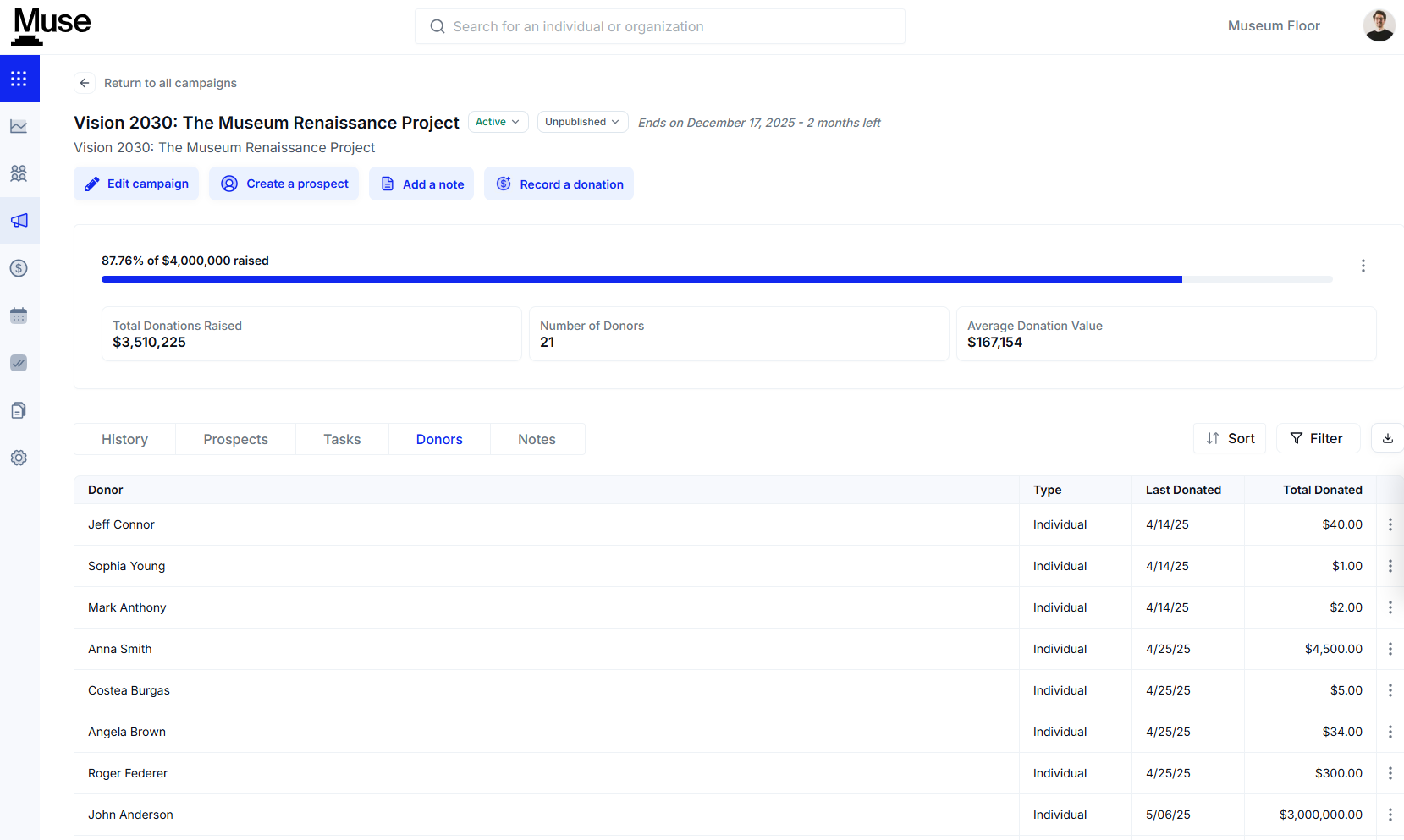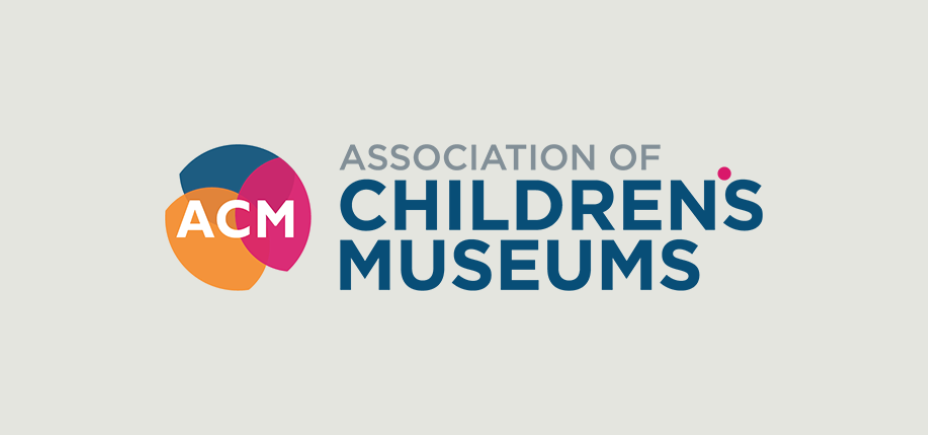Muse: An Operations Management Platform Built For Museums

An article by Neal Stimler, President at Stimler Advantage
Introduction
To thrive, museums need high-quality, data-driven insights, streamlined operations, and sustainable engagement and revenue strategies. Muse, a new operations management platform (OMP), is specifically designed from the ground up to meet the complex and nuanced demands of museums, which are multifaceted organizations with multiple businesses within one larger entity. Muse offers a robust suite of features designed to support museums across various operations, including ticketing, exhibitions, performances, food and beverage services, retail, camps, and more. As a compelling, comprehensive solution for institutions currently grappling with disconnected or underperforming systems, Muse can enable the development and implementation of integrated, efficient, and resilient methods for long-term institutional viability.
Streamlined Operations
Muse streamlines daily tasks and enhances the overall customer experience by providing consistency and convenience for both management and staff, enabling them to further improve the customer experience. Muse positions itself as an intuitive software platform that will augment and ease the work of executives, information technology (IT) professionals, and power users across the institution. Muse believes its interface makes for a user-friendly experience that can be embraced, learned, and optimized by users throughout a museum by those with varying degrees of their technological knowledge and skill, from a volunteer to the director of IT.
Enhanced Customer Experience
Museum patrons are more than just visitors; they are customers, and their consumer behaviors and expectations remain unchanged when they engage with a museum. They may also fulfill multiple roles, such as ticket buyers, gift shop patrons, cafe diners, program attendees, or donors. Many museums struggle with managing ticketing, memberships, and retail across disparate systems or legacy platforms, leading to inefficiencies and a fragmented customer experience. Muse addresses this by offering a centralized platform for ticketing and admissions, customer relationship management (CRM), membership management, fundraising and donor insights, point of sale (POS), operations, camps and workshops, and robust reporting and analytics.
Effective Customer Engagement
Effective customer engagement is paramount for any museum. Traditional methods, often relying on manual tracking and siloed data, hinder personalized outreach. Muse's CRM addresses this by building unified profiles for contacts—visitors, members, donors, and volunteers—and tracking their engagement across touchpoints. This comprehensive approach enables robust segmentation and targeted outreach through email tools, allowing for effective communication and engagement. Muse streamlines membership management with features such as flexible tier creation, auto-renewals, and digital and physical membership cards accessible and usable through popular platforms like Apple Pay and Google Wallet. For fundraising, Muse empowers efforts with detailed donor segmentation, lifetime value scoring, and campaign and task management tools. By centralizing this data and providing intelligent insights across all user roles and touchpoints, Muse helps museums to cultivate deeper relationships and maximize their impact, further enhanced by suggested asks for donors and AI-supported draft messaging to quickly initiate and refine crucial communications.
Building Data-Informed Capability and Adaptability
Museums often struggle to extract actionable insights from their data and operational information. Muse addresses this by providing reporting and analytics dashboards that deliver real-time data on ticket sales, memberships, and donations. The platform further enhances this capability with a custom report builder, offering filters and export tools for CSV and PDF formats, enabling museums to thoroughly analyze campaign ROI and membership churn. The ability to discern trends and pinpoint areas for improvement is crucial for dynamic strategic planning, as it helps institutions to be more adaptable and responsive to ever-changing circumstances. By embracing an OMP like Muse, museums are not merely adopting new software; they are making a strategic investment in a powerful tool that leverages their crucial data assets to inform decisions and facilitate adaptation to evolving needs and real-world conditions.
Common Sense Core Integrations
An optimized OMP system can be flexible and prudently adapt to an organization's existing information technology (IT) infrastructure. Recognizing that museums may be at different stages of their IT evolution, Muse offers integrations with essential platforms, such as QuickBooks Online and Financial Edge NXT, to facilitate accurate accounting synchronization and reduce the need for manual data entry. It also integrates with Google Calendar and Outlook for scheduling, as well as Mailchimp and Constant Contact for targeted communication, and Stripe for secure payments, thereby fostering an efficient operational environment. Muse supports web CMS integration for embedded ticketing, donations, and online stores, as well as hardware integrations for barcode scanners, receipt printers, cash drawers, and kiosks. Muse seeks to build and maintain native integrations with core partners through its API, prioritizing solutions that are most widely adopted and supported, as well as being beneficial to its customers and complementary to its comprehensive core product.
Client Dialogue and Collaborative Development
Muse pursues a forward-thinking approach, actively pursuing client dialogue and collaborative product development. By proactively engaging with clients, consultants, and software solution providers, Muse aims to situate its museum OMP system at the forefront of museum technology, providing relevant, reliable, and impactful solutions now and in the future. This ongoing collaboration helps Muse’s platform evolve with the dynamic needs of museums, to foster long-term relationships and continuous innovation. The goal for Muse is to support museums with tools that not only meet current demands but also anticipate future challenges and opportunities for operational excellence.
Conclusion
A museum OMP system, such as Muse, provides a robust solution for institutions seeking to modernize operations, strengthen constituent relationships, and make more informed decisions. By integrating essential functions and providing analytical tools, Muse supports museums in maintaining their financial and organizational health, as well as their continued relevance. This comprehensive approach enables museums to adapt to evolving challenges and opportunities, fostering sustainability and engagement. Muse serves as a strategic platform and partner, supporting museums in effectively pursuing their missions and maximizing their impact with customers and stakeholders.
To learn more about how a purpose-built OMP for museums can help your organization, visit musesoftware.ai to schedule a demo, connect with the Muse team, and explore the platform for yourself.
This article was informed by a real-time demonstration of Muse’s software and a dialogue between Travis Fuller, Founder and CEO of Muse Software, and Neal Stimler, President of Stimler Advantage. Stimler Advantage is an executive management consulting firm offering operations management platform services.
.png)

